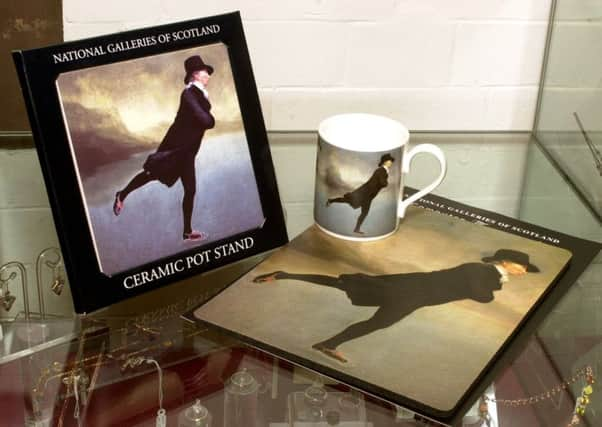Russell Barr: Modern slavery would have appalled Skating Minister


Who is Scotland’s skating minister? And what is his connection with the slave trade? The Reverend Robert Walker is the answer to the first question. From 1784 until his death in 1808, Robert was minister of Edinburgh’s Canongate church.
As a young boy, Robert had learned to skate on the frozen canals of the Netherlands where his father had been minister at the Scots Kirk in Rotterdam. Robert became a member of the Edinburgh Skating Club. The club met on Duddingston Loch and Robert’s skating elegance was captured by the artist, Henry Raeburn.
Advertisement
Hide AdAdvertisement
Hide AdTo answer the second question, Robert’s connection with the slave trade, let me take you to Elmina Castle on Ghana’s Gold Coast. For the better part of 300 years, Elmina Castle was one the principal points of departure for the slave trade.
Hundreds of thousands of young African men, women and children were captured, shackled together in the castle’s dungeons, herded onto specially built slave ships, and taken across the Atlantic.
Like Auschwitz or Srebrenica, it still reeks of unimaginable human horror. At Elmina Castle, Robert Walker is honoured as one of the people who campaigned against the trade in human misery.
Chaplain of the Royal Company of Archers, a member of the Royal Society of Edinburgh, chaplain of the Edinburgh Chamber of Commerce and, by dint of his appointment at Canongate, minister at the Palace of Holyrood House, Robert Walker was the epitome of an establishment figure and yet he went against the vested interests of many in Edinburgh and beyond.
Advertisement
Hide AdAdvertisement
Hide AdIn 1788, Walker persuaded the Presbytery of Edinburgh to petition Parliament to end the slave trade. The wheels of Parliament turned slowly, William Wilberforce championed the cause, and it wasn’t until 1807 and 1833 the Slave Trade and the Slave Abolition Acts were passed outlawing slavery throughout the British Empire.
If only that were true! Human trafficking is the modern equivalent of the slave trade and the number of trafficking referrals to Police Scotland has steadily increased in recent years with 2017 seeing a 42 per cent rise in referrals to 213, with 61 involving children.
Nail bars, car washes, building sites, seasonal agricultural work, cleaning companies and the sex industry are said to be where trafficked people are most often found. I was saddened to learn how many Airbnb flats in Edinburgh are being used as brothels.
Dropped off and collected in overcrowded minibuses with little knowledge of the area where they are working, often poorly or inappropriately dressed, the typical victims of human trafficking have few belongings, few if any forms of identification and, most tellingly of all, are fearful of threats of violence to themselves or their families. They will avoid eye contact and be reluctant to engage you in conversation.
Advertisement
Hide AdAdvertisement
Hide AdIf you suspect someone may be a victim of human trafficking, please contact Police Scotland (dial 101) or the Modern Slavery confidential helpline (08000 121 700). On one of the dungeons at Elmina Castle where difficult prisoners were left to starve to death, there is a plaque which includes these words: “May humanity never again perpetrate such injustice against humanity. We, the living, vow to uphold this.”
Seeking to resolve the horrors of the slave trade of his day Robert Walker took that vow seriously. As we become aware of the horrors of human trafficking today, will we take it seriously too? Russell Barr is minister at Cramond Kirk and a former Moderator of the General Assembly of the Church of Scotland